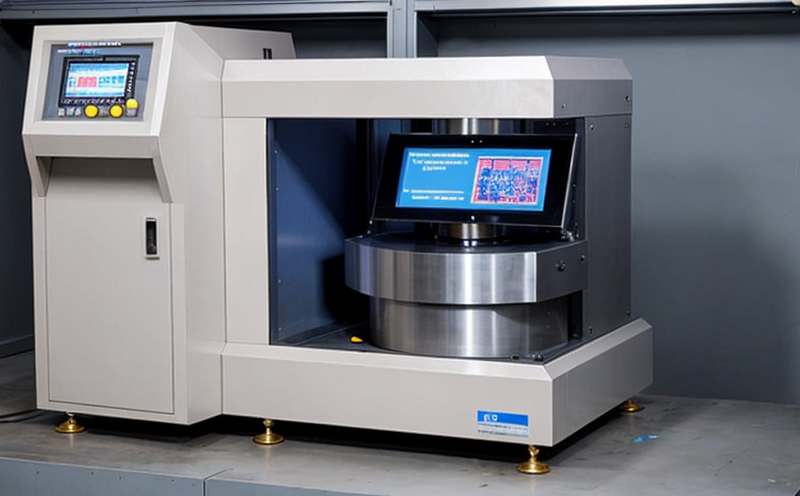ISO 1101 Geometrical Tolerancing of Additive Manufactured Parts
The ISO 1101 standard provides a comprehensive framework for understanding and implementing geometrical tolerancing in manufacturing processes. For additive manufactured (AM) parts, this becomes particularly crucial as the precision and quality of AM components can significantly impact end-product performance.
ISO 1101 defines a system that allows manufacturers to specify tolerances for various aspects such as size, form, orientation, position, and run-out. These parameters are essential in ensuring that parts meet their design intent accurately, especially when dealing with complex geometries typical of AM processes. In the context of additive manufacturing, deviations from these specified tolerances can lead to functional failures or poor performance.
The standard is widely recognized for its ability to bridge the gap between design and manufacturing by providing a clear language that both sides understand. This makes it an indispensable tool for quality managers, compliance officers, R&D engineers, and procurement teams involved in AM processes.
When applying ISO 1101 standards to additive manufactured parts, several unique challenges arise due to the nature of AM technologies such as laser sintering, electron beam melting, or fused deposition modeling. The layer-by-layer construction process can introduce inconsistencies that must be accounted for in tolerancing.
In this service, we focus on ensuring that additive manufactured parts adhere strictly to ISO 1101 standards, thereby guaranteeing dimensional accuracy and surface finish. Our laboratory utilizes advanced metrology tools like coordinate measuring machines (CMMs) and laser scanners to measure critical dimensions and geometries with high precision. We also employ specialized software to interpret the results against ISO 1101 specifications.
The testing process involves several steps including initial part inspection, detailed measurement using appropriate instrumentation, and comparison against ISO 1101 tolerances. The entire procedure ensures that any deviation from the specified tolerances is identified early in the production cycle, allowing for corrective actions to be taken promptly.
Our approach not only enhances product quality but also streamlines compliance with international standards, reducing potential risks associated with non-compliance. By adhering strictly to ISO 1101 guidelines during AM processes, manufacturers can ensure that their products meet the highest level of quality and reliability expected by end-users.
Scope and Methodology
| Scope | Description |
|---|---|
| Part Inspection | Initial inspection of parts to identify any visible defects or issues. |
| Measurement Techniques | Use of CMMs, laser scanners, and other metrology tools for precise measurements. |
| Data Analysis | Comparison of measured data against ISO 1101 tolerances using specialized software. |
The methodology employed ensures that all aspects of geometrical tolerancing are thoroughly addressed, providing comprehensive insights into the performance and accuracy of additive manufactured parts. This approach aligns with international best practices outlined in ISO standards, ensuring high levels of reliability across various industries.
Benefits
The implementation of ISO 1101 geometrical tolerancing for additive manufactured parts offers numerous advantages to manufacturers and end-users alike. Firstly, it enhances product quality by ensuring that all critical dimensions and features are accurately reproduced according to design intent.
Secondly, adherence to these standards minimizes the risk of functional failures due to dimensional discrepancies or surface imperfections. This leads to improved overall performance and durability of products across various sectors including aerospace, automotive, medical devices, etc.
Furthermore, compliance with ISO 1101 facilitates smoother integration into global supply chains by ensuring that parts meet international quality standards consistently. It also simplifies the certification process for new products entering regulated markets.
Beyond these technical benefits, there are significant commercial advantages as well. Customers trust brands that deliver consistent product quality, leading to increased customer satisfaction and loyalty. Additionally, meeting high-quality standards can open doors to lucrative export opportunities where stringent regulatory requirements exist.
Industry Applications
- Aerospace: Ensuring structural integrity of components like turbine blades or landing gear.
- Automotive: Achieving precise fit and finish in engine assemblies, body panels, etc.
- Medical Devices: Guaranteeing accuracy in prosthetics, implants, surgical instruments, etc.
- Consumer Electronics: Producing intricate casings and internal components for smartphones, laptops, etc.
In each of these industries, maintaining strict adherence to ISO 1101 geometrical tolerancing is critical. For instance, in the aerospace sector, even minor deviations from specified tolerances can result in catastrophic failure during flight operations. Similarly, in medical devices, precision is paramount for patient safety and effective treatment.
Our laboratory supports these industries by providing accurate testing services that help maintain strict compliance with ISO 1101 standards. This ensures that additive manufactured parts are not only produced efficiently but also meet the highest levels of quality required by industry-specific regulations.





